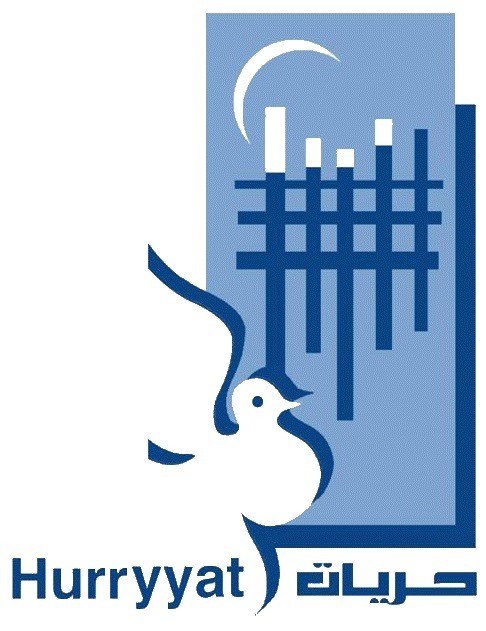In 2009, the Center for Defense of Liberties and Civil Rights “Hurryyat” has implemented a project titled “Improving the Human Rights Conditions Palestinian Female Detainees and their Children in Israeli Prisons” funded by the NGO Development Center (NDC). According to the Association of Women Committees for Social Work, there are 66 Palestinian political female prisoner in Israeli Prisons. 20 women of them are married, some are divorced, while all of them have a total of 75 children.
So far most organizations and individuals working on the circumstances of female political prisoners in Israeli prisons focus on the living and health conditions of the prisoners, and the physical and psychological effect of torture, interrogation, trial and imprisonment, particularly in cases where their basic human rights have been violated. Nonetheless, these organizations failed to see the basic truth that a third of these prisoners are mothers who got separated from their children and are not supported by any governmental body. This project was implemented in the Israeli prisons in the West Bank and the Gaza Strip.
Project Goals:
- Raise social awareness about the living conditions of Palestinian female prisoners as they suffer different violations from the Israeli Prison Services (IPS) and are not given appropriate attention from the Palestine National Authority (PA).
- Encourage the PA to secure services for the imprisoned women and their children, follow-up their circumstances and establish a non-governmental and civil society organizations coalition that works towards eliminating the suffering of the children, treat the social problems facing the women, and alleviate their suffering.
Project Activities:
- Regular visits of the Attorney to the prisoners targeted by the project. These visits aim at exploring their conditions, guiding them with legal counseling and procedures, and acting as a communication tool between them and their families. The visits will take place twice a month.
- Social workers and specialists will work with the prisoners and their children through house visits, data collection about the children covering their living conditions and basic needs, and offering prison stories throughout the several activities of the project.
- A media campaign to refocus on the female prisoners through newspapers, radio broadcasts, TV, and the internet.
- Design and publish a brochure in support of the prisoners and their children. The brochure includes stories from the prisoners during their arrest in Israeli Prisons, and legal material covering the Convention on the Rights of the Child (UNCRC) and the Palestinian legislation concerning the rights of children.

